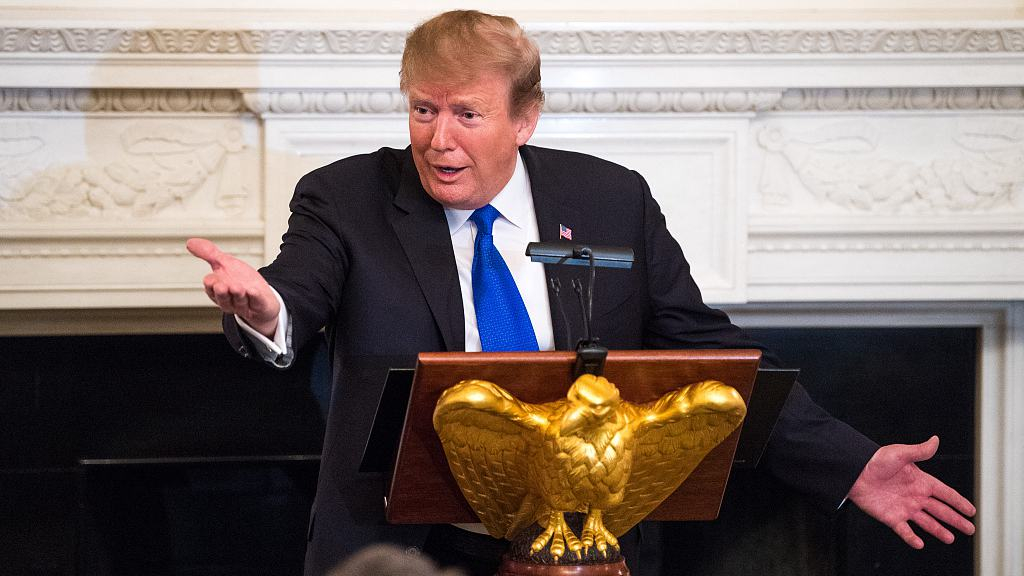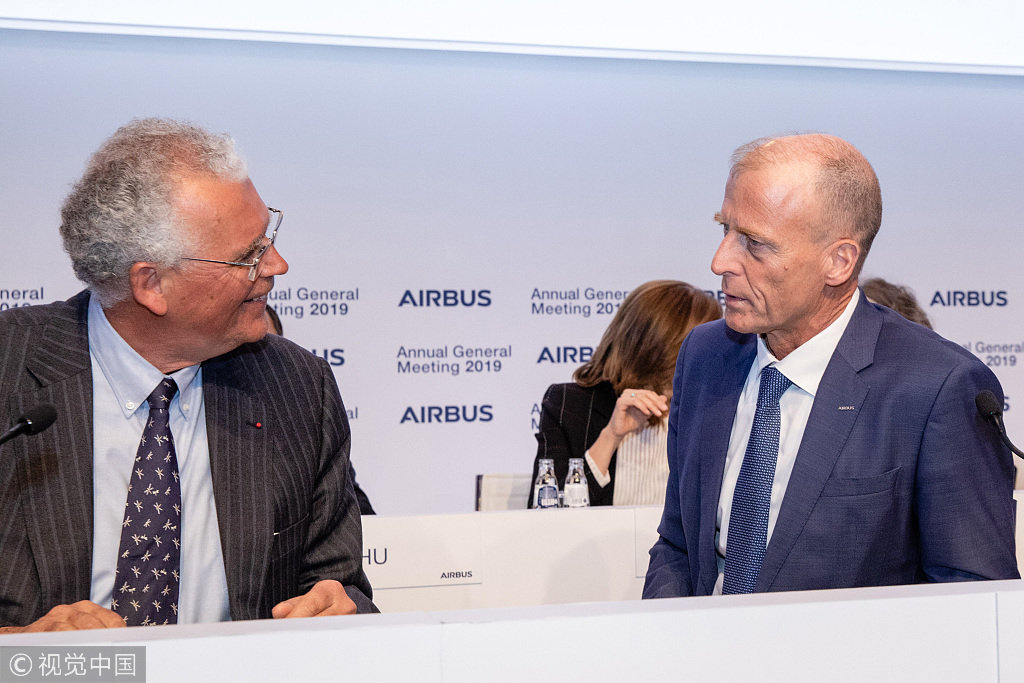
Opinion
16:22, 11-Apr-2019
Europe is as threatened as China by Trump's new tariffs
Updated
11:36, 13-Apr-2019
William Jones

Editor's note: William Jones is the Washington Bureau Chief for Executive Intelligence Review and a non-resident fellow of the Chongyang Institute for Financial Studies, Renmin University of China. The article reflects the author's opinion, and not necessarily the views of CGTN.
On April 9, U.S. President Donald Trump announced on Twitter that the U.S. will impose tariffs on 11 billion U.S. dollars worth of European Union products, ranging from airplanes to dairy products. Imposing tariffs seems to be the latest arrow in the Trump quiver these days in achieving some of his long-term goals. The real question, however, is how effective will they be in realizing the revival of U.S. economic growth.
While the tariffs on Chinese goods are connected to the wish of the Trump administration for a "readjustment" of trade with China by forcing it to modify, or even eliminate, an “industrial policy” that has so successfully helped China pull itself out of poverty, these new tariffs on Europe are a specific reaction to the subsidies European governments have provided to their airplane industry.
A U.S. case dealing with European subsidies of Airbus has been in litigation at the World Trade Organization (WTO) for 14 years, and the WTO has ruled in favor of the U.S. Now they must rule whether the tariffs on European goods is an appropriate response. Meanwhile, the Europeans are preparing their own list for retaliation in kind at the point the U.S. actually imposes the threatened tariffs.

European Commissioner for Trade Cecilia Malmstroem addresses a press conference on the U.S. restrictions on imported steel and aluminum at the Berlaymont, the European Commission headquarters in Brussels, Belgium, June 1, 2018. /VCG Photo
European Commissioner for Trade Cecilia Malmstroem addresses a press conference on the U.S. restrictions on imported steel and aluminum at the Berlaymont, the European Commission headquarters in Brussels, Belgium, June 1, 2018. /VCG Photo
While the Europeans do not dispute the claims of subsidies to Airbus, they argue that Boeing, the main competitor of Airbus, has also received some indirect subsidies in the form of technical assistance through government research contracts granted the company by agencies like the Defense Department and NASA, as well as in the form of tax breaks at the federal, state and local levels.
While this issue has been under litigation for 14 years, the pressure that Boeing is feeling at the moment with the two fatal accidents of its main-line airplane, the 737 Max, which has given Airbus a relative boost in the international market, has no doubt added more urgency to these measures announced by U.S. Trade Representative Robert Lighthizer on April 8.
And since some of the U.S. tariffs have been placed on airplanes, the Europeans, who have not yet announced what products they will target in return, will most likely target Boeing, the No.1 U.S. airplane manufacturer.

Denis Ranque, chairman of Airbus SE (L), speaks with Tom Enders, outgoing chief executive officer of Airbus SE, during the Airbus SE annual general meeting in Amsterdam, Netherlands, April 10, 2019. /VCG Photo
Denis Ranque, chairman of Airbus SE (L), speaks with Tom Enders, outgoing chief executive officer of Airbus SE, during the Airbus SE annual general meeting in Amsterdam, Netherlands, April 10, 2019. /VCG Photo
So as the world hopes to breathe a sigh of relief for what is expected to be a successful conclusion of the U.S.-China trade dispute, a new major trade dispute now looms on the horizon. And while tariffs can play a useful role in cases such as tariffs to protect infant industries from the foreign "dumping" of cheaper products, or to protect industries vital to the nation's security, the indiscriminate wielding of tariffs for adjusting what are deemed unfair terms of trade or simply for reasons of political bullying, can wreak havoc for both sides.
President Trump has already placed tariffs on European aluminum and steel and has threatened to impose tariffs on European autos if they cannot come to a suitable agreement with the Europeans. But the attempt to resolve every political dispute through liberal use of tariff policy would make tariff wars a permanent feature of our political geometry with all the political and economic uncertainties this would entail. It should rather function as a weapon of last resort.
Granted, the international trade system we now have is infused with a multitude of inequalities and biases. While President Trump, in this case, has so far abided by the WTO rulings, both the U.S. and China have expressed some concerns with the way in which the WTO works. The task before the world now is to create a financial and political structure which is both effective and just, taking into account both the needs of the major producers as well as the just demands of the developing countries for development.
President Xi Jinping's "community of shared interest" is perhaps the best way to characterize the goal which we should be aiming for. And while the U.S. and China have different concerns that aren't always in sync, a willingness to take into consideration the “good of the other” would go a long way in overcoming disputes. But to continue moving in the direction of a continual tit-for-tat imposition of tariffs and sanctions in dealing with crises and inequities will only engender even greater tension between nations and the danger of conflict as well as increased turmoil on the already roiled markets.
(If you want to contribute and have specific expertise, please contact us at opinions@cgtn.com)

SITEMAP
Copyright © 2018 CGTN. Beijing ICP prepared NO.16065310-3
Copyright © 2018 CGTN. Beijing ICP prepared NO.16065310-3